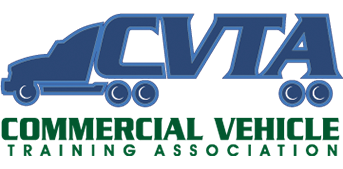Truckers, in general, but especially long-distance, or Over-the-road (OTR), truckers traveling throughout America, span different time zones. During their travels, they may face several challenges related to timezone changes. Drivers need to understand how these changes relate to their routes and the preventative actions they can take to ensure time zones do not impact performance.
Scheduling and Coordination
Truckers often have strict schedules to meet, whether delivering goods or following driving regulations. Crossing into a different time zone can affect their ability to stick to these schedules. They must consider the time change when planning routes and estimating arrival times.
Electronic Logging Devices (ELDs)
Many truckers must use ELDs to track their driving hours and comply with regulations like the Hours of Service (HOS) rules. These devices are typically programmed to adjust automatically for time zone changes, but truckers must still know how these changes affect their driving hours and rest periods.
Regulatory Compliance
Truckers must be aware of how time zone changes affect regulations related to driving hours, rest breaks, and other safety requirements. Adhering to these regulations is essential for their safety and compliance with the law.
Circadian Rhythms and Fatigue
Frequent time zone changes can disrupt a trucker’s circadian rhythms, leading to fatigue and sleep disturbances. Adapting to different time zones can be challenging, especially for long-haul truckers who frequently cross multiple time zones during their journeys.
Communication
Effective communication with dispatchers, customers, and other truckers is essential for truckers to coordinate pickups, deliveries, and other logistics. Time zone differences complicate communication, so precise and accurate timekeeping is crucial.
Weather and Traffic Conditions
Truckers must stay updated on weather and traffic conditions to make informed decisions while on the road. Knowing the local time in each area they pass through can help them plan for potential delays and hazards.
Steps to Take
Truckers can take several steps to mitigate the challenges of time zone changes. One is using GPS and navigation tools that account for time zone changes and provide real-time updates on arrival times. These tools will help keep you up to date when you cross time zone lines and help you accommodate those changes.
Maintaining a flexible schedule to accommodate unexpected delays due to time zone changes or other factors will also help you reduce the stress of crossing through time zones. Prioritize sleep and rest to combat fatigue when adapting to new time zones. Stay informed about local traffic and weather through apps and communication with fellow truckers.
Overall, time zone changes can present challenges for truckers.
Careful planning, adaptability, and the use of technology can help you navigate these challenges and maintain safe and efficient operations on the road. Ensure you set your ELDs to adjust automatically for time zone changes. Communicate effectively with dispatchers and customers to inform them of any time-related issues.
At Yuma, skilled instructors with real-world driving experience teach our CDL classes. They will help you navigate any difficulty you might experience on the road, including changing time zones.








